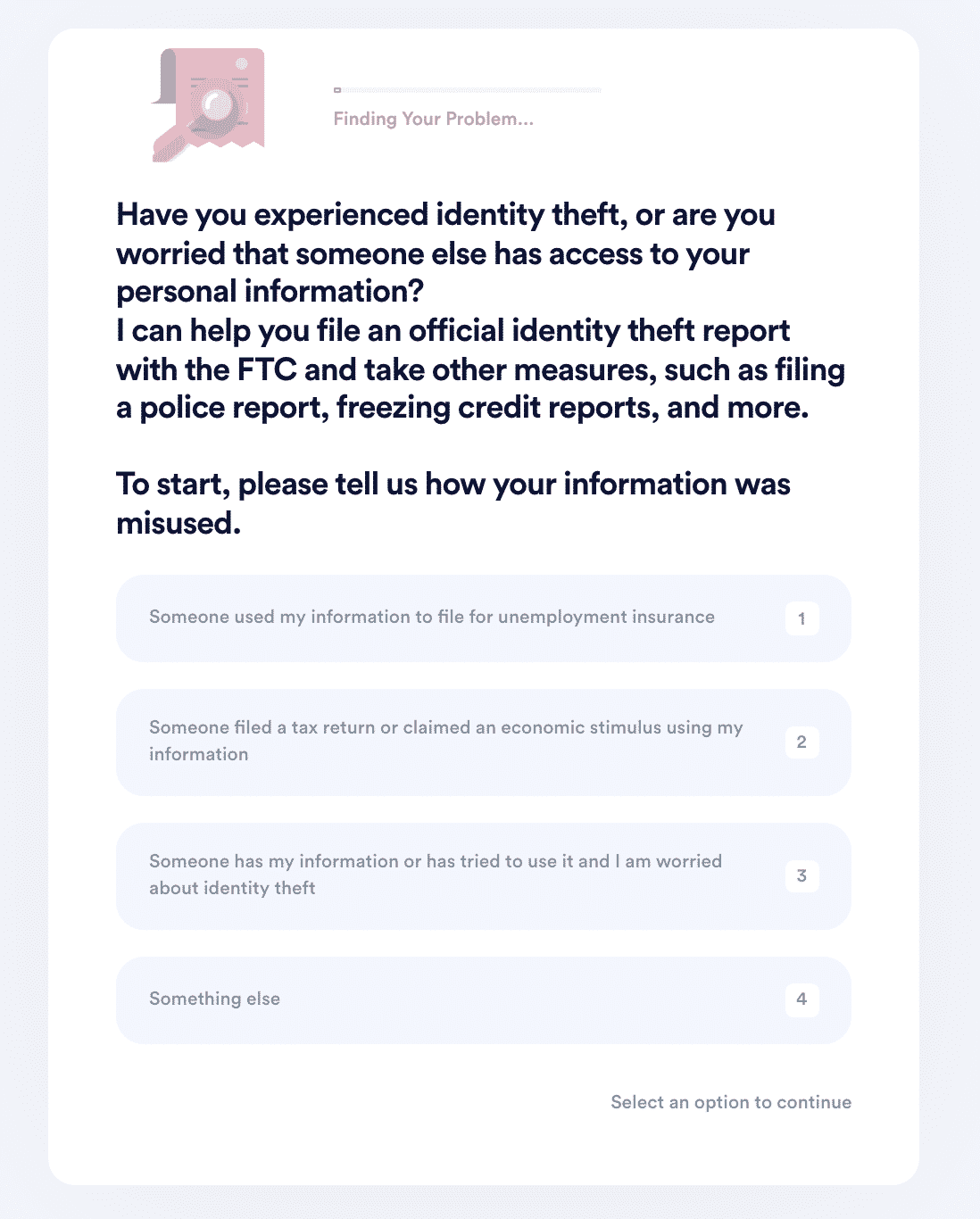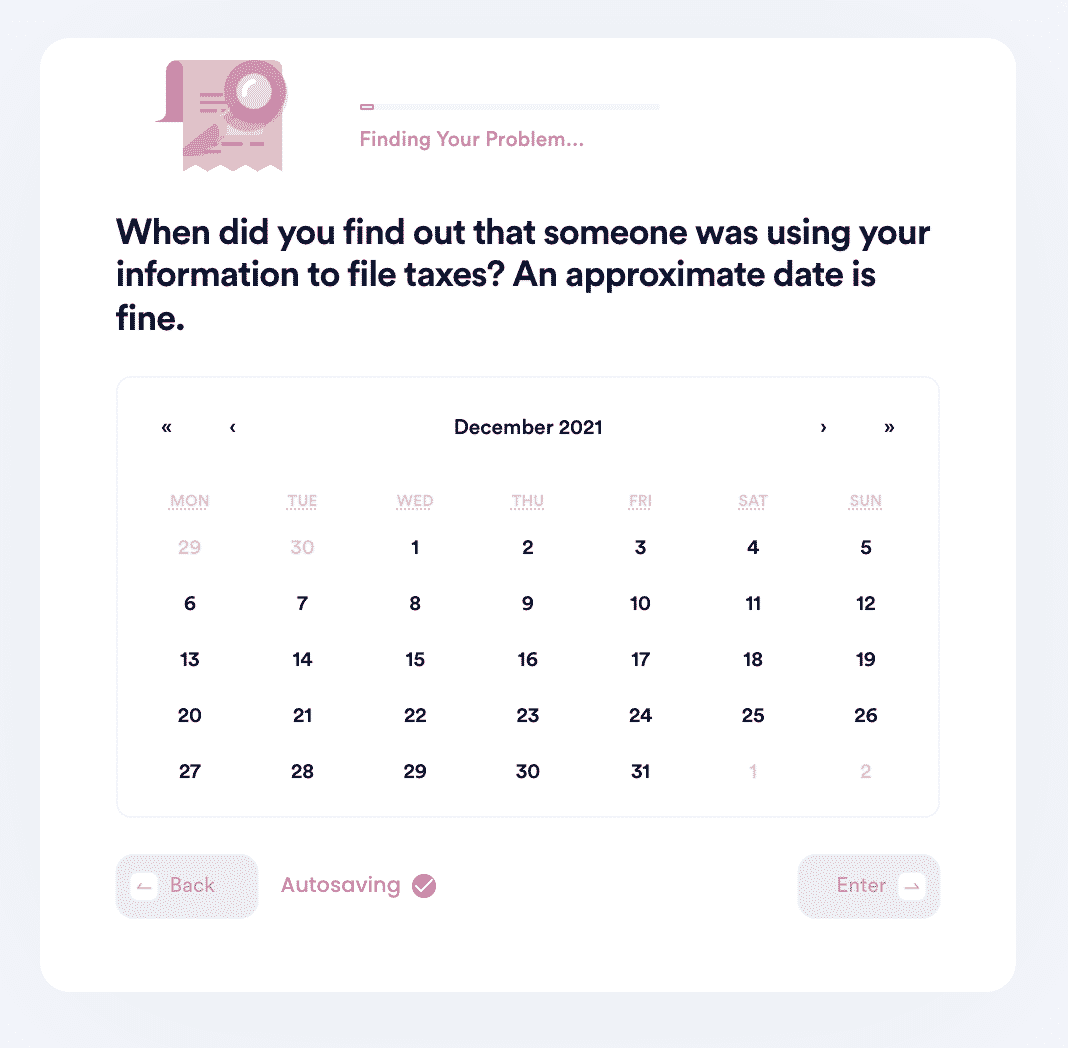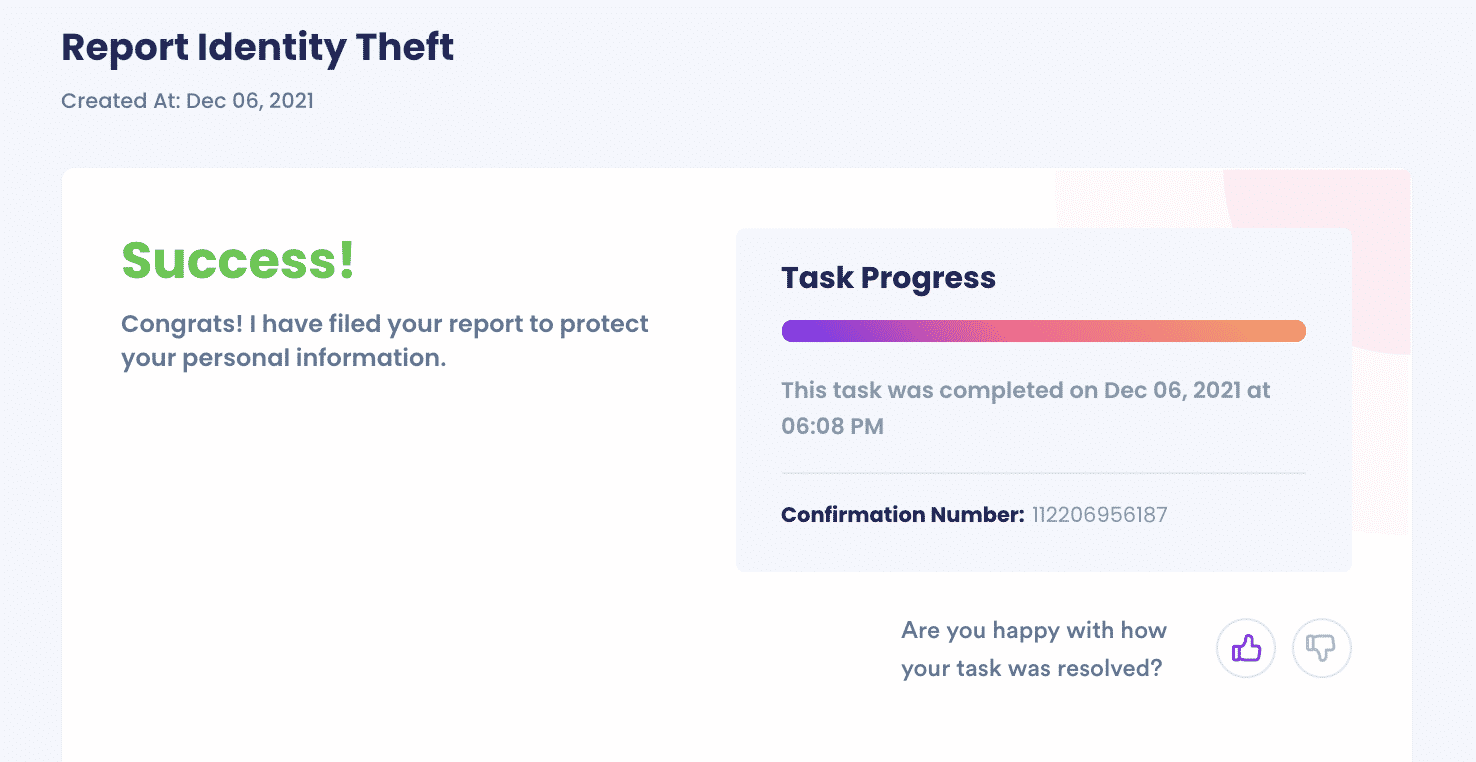How to Report Credit Card Fraud to Police With No Stress or Hassle
When you have fallen , do you know the proper procedure for reporting it to your local police? Identity theft and credit card fraud is at an all-time high on a global scale.
In this post, we are going to take a look at the procedures involved in reporting credit card fraud to the local authorities. Then we will show you how to with a solution from DoNotPay.
What You Should Know About Reporting Your Credit Card Fraud to Police
If your identity has been stolen or your credit card has been hacked, you definitely need to report these instances to your local police department. But in order to do that, there are a couple of things you need to do first to keep from making extra trips back and forth to the police station.
The first thing you need to do is to file a credit card fraud affidavit with the Federal Trade Commission(FTC). This affidavit will serve as an official written statement of the credit card fraud issue, and you will copy this document for the police report and the report you will file with the credit bureaus.
Your credit card issuer will send you an affidavit of credit card fraud, or to save time, you can get one directly from the FTC, just download, print as many copies as you need, and fill them out accordingly. Be sure you;
- Sign and date in the presence of a notary or law enforcement.
- Do not leave any information out. Make sure every numbered item on the affidavit has been addressed.
- Be as detailed as possible about the specific incident you are reporting. Leave nothing to chance, and even the most minute detail can be beneficial.
Now your credit card fraud affidavit is complete, and you can now involve local law enforcement.
Getting Local Law Enforcement Involved
After you have the affidavit complete, you can either go to a local police station or have an officer come to your home. Filing a police report of the incident shouldn't cost you anything but policies do vary from state to state and town to town.
Be prepared to produce the following items;
- Government-issued photo ID such as a state-issued driver's license
- Proof of residency (mortgage statement or utility bill)
- Proof of the fraud (credit card statement or IRS notice)
Be sure to keep a copy of the police report for your records. Local law enforcement will issue a case number for the police report, and you will need that number when corresponding with the police concerning your case.
Is a Police Report Necessary?
The Federal Deposit Insurance Corporation (FDIC) highly recommends filing a police report of your credit card fraud incident. While the police might not be instrumental in bringing the fraudsters to justice, a report states your innocence in the matter should you be called on to contest the charges down the road.
Also, filing a police report alerts the police that financial crimes are being committed within their jurisdiction. If the fraud committed involved funds from your local bank, the bank would require a police report to begin their investigation into the matter.
Finding the right affidavit to fill out, securing all the needed documents to back your claim, and having to do all the leg work in the matter can be a time-consuming and frustrating issue.
Now let's show you how to report credit card fraud to your local police using the services of DoNotPay.
The Fast, Easy Way to Report Credit Card Fraud to Police Using DoNotPay
The DoNotPay suite of services was designed to level the playing field and make things like reporting your credit card fraud to the police a simple matter. Look at how fast and easy it can be using DoNotPay.
You can let DoNotPay handle all the heavy lifting when it comes to identity theft and credit fraud issues. With DoNotPay, you can;
- File an official report with the FTC
- Alert state agencies about unemployment insurance fraud
- Alert the U.S. Department of Justice's National Center for Disaster Fraud (NCDF) about unemployment insurance fraud
- Contact the IRS about tax fraud
- File a police report
- Contact the credit bureaus to set up fraud alerts and freeze credit reports.
How to deal with identity theft and credit card fraud using DoNotPay:
- Search "identity theft" on DoNotPay and select the type of incident you would like to report.

- Tell us more about the incident that occurred, including the location, date, time, financial loss, and any suspect information you may have.

- We'll identify whether you should file an FTC report, contact the IRS, freeze your credit report, contact state agencies, or file a police report. Once we guide you through the best options, we'll automatically submit the reports on your behalf.

And that's it. DoNotPay will make sure your issue gets sent to the right place. We'll upload confirmation documents to your task for you to view, and if the contacts need more information, they will reach out to you personally via email or mail.
Why You Should Use DoNotPay
DoNotPay is your information hub for many services you may need. Look at these three reasons to trust the team at DoNotPay.
- DoNotPay is Fast
- DoNotPay is Easy
- DoNotPay is Successful
The number of identity theft/credit card issues resolved by DoNotPay continues to rise every day. Turn your credit card fraud problem into a success story using DoNotPay.
What Else Can You Do With DoNotPay?
Handling your credit card fraud police report is just a small sample of what you can do using DoNotPay. Look at these other identity theft/credit issues you can navigate using DoNotPay.
| Learn more about identity theft | Learn how to report identity theft |
| Learn about IRS identity theft | Someone filed for unemployment in my name |
| Learn about credit card fraud | Social security identity theft |
| Stolen stimulus checks | Equifax identity theft |
| Experian identity theft | How to send demand letters to for identity theft |
Let DoNotPay show you how fast and easy it can be to report your credit card fraud to the police.


